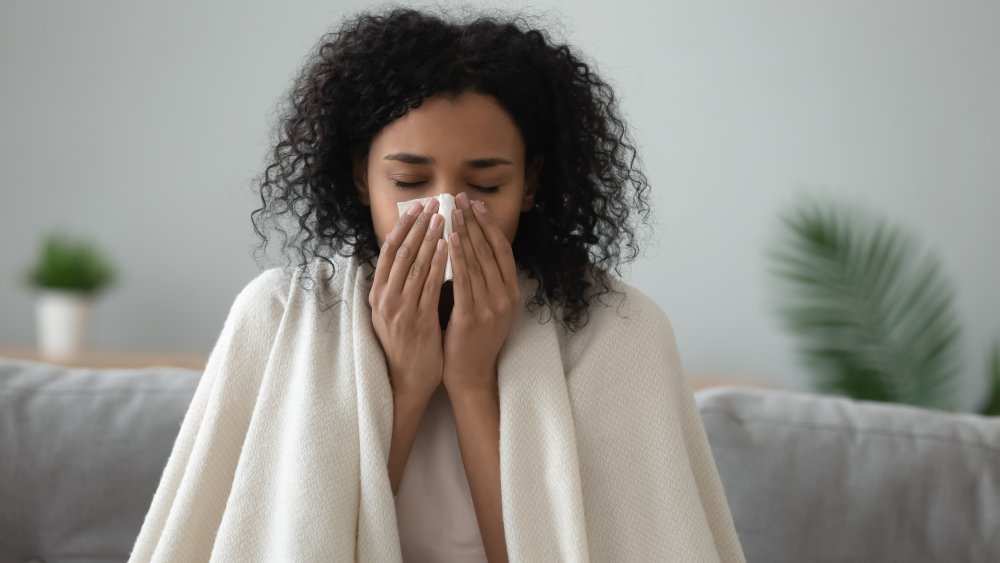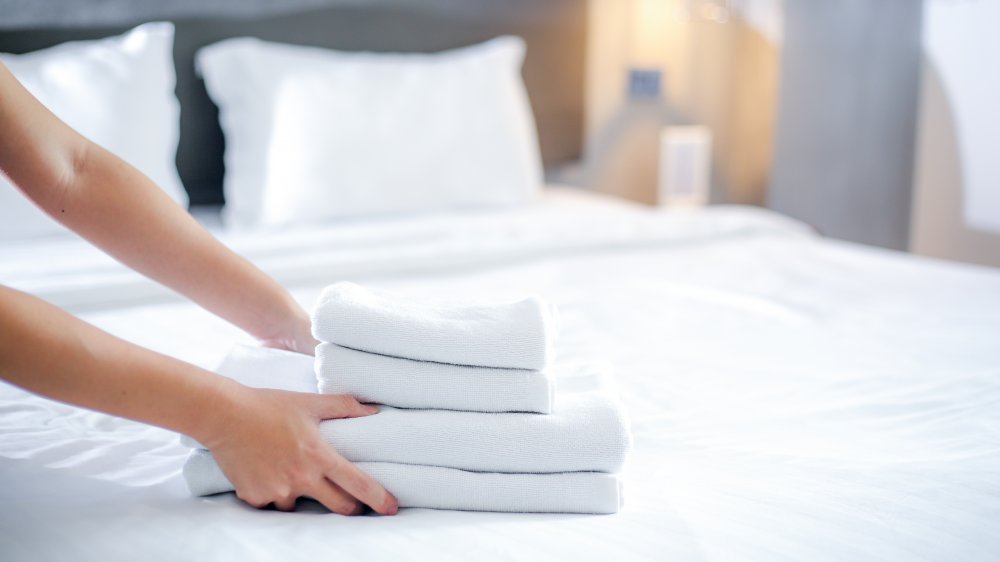Sleeping with a fan on might seem like something you’d only need to do on the hottest summer nights, at least if your AC’s not up to the task (or, horrors, you’re living in an AC-free apartment) and the heat won’t let you sleep. There are other occasions when a fan might help you snooze, as well, such as if you’re sharing a home with someone who insists on cranking up the heat to subtropical levels despite the fact that everyone knows cooler temps = good sleeping weather. (Healthline says 65 degrees is the best temperature for quality sleep.) Or you may be feverish, or menopausal, or just have a body temperature that runs a bit on the high side.
Whatever your reason for needing a little nighttime cooling, a fan might seem like the perfect solution for making sure that your room (or your side of the bed) alone gets cooled down without affecting the temperature in the rest of the house. Wait, not so fast with the fan, there! It turns out that sleeping with a fan on may, under certain circumstances, be harmful to your health.
Who should avoid sleeping with a fan on

Bustle spoke with Dr. Seema Sarin M.D., director of lifestyle medicine at EHE Health, and her take on the issue is that sleeping with a fan on in your bedroom “may cause more harm than good if you suffer from allergies.” The reason for this is because fans blow the air around the room and, as Sarin points out, this means that the fan also “blows around dust particles [so] if you are allergic to dust mites, it can exacerbate your symptoms with increased exposure.” She also says that fans can circulate pollen in the air, which will obviously be problematic if you’re bothered by pollen allergies and hay fever.
Even if you don’t suffer from specific allergies, there’s one more problem with fan-cooled, recirculated air. The air blown around by a fan tends to contain less moisture, which, as Sarin says, “can lead to drying out of your mucous membranes and sinus irritation.”
How to sleep cooler without aggravating your allergies

If you must sleep with a fan on to get the necessary cooling, Sarin notes that you’ll need to make sure your room is practically dust-free and surgically sterile (no easy task, should your bed partner be of the furry persuasion). If the thought of daily pre-bedtime cleaning does not appeal, though, the Sleep Foundation offers a few more tips that can help you sleep cooler.
A warm bath prior to bed will not only relax you but can also lower your body temperature a few degrees as soon as you get out of the tub. Cooling pillows also do the job that their name implies — and if you’ve got big bucks, you might even spring for a cooling mattress, too. Natural-fiber bedding stays cooler than does that made from synthetic fabrics, but even if you can’t afford new sheets and pillowcases (much less a mattress), just popping your bed linen in the freezer for a few hours lets you cool down your sleep on the cheap.